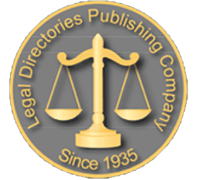Do I Need a Business Litigation Attorney? A Guide
The idea of a lawsuit can bring up a lot of anxiety, thanks to dramatic courtroom showdowns in movies and on TV. But the reality of business litigation is often much different, and many common beliefs about the process are simply not true. Many owners think legal disputes are only for large corporations or that every case ends in a tense trial. A skilled business litigation attorney knows that the primary goal is to find the most efficient path to a favorable resolution, which often happens through negotiation or mediation. Let’s clear up the biggest myths so you can approach legal challenges with confidence.
Key Takeaways
- Treat Legal Counsel as a Strategic Investment: Instead of waiting for a crisis, work with an attorney early to draft solid contracts and manage small issues. This preventative approach saves money and stress by solving problems before they escalate into costly legal battles.
- Find an Attorney Who Fits Your Business: The right legal partner has specific experience in your industry and a communication style that gives you confidence. Focus on finding a true advisor who understands your goals and can offer tailored, strategic advice for your unique situation.
- Demystify the Litigation Process: Most business disputes are resolved through negotiation or settlement, not a dramatic trial. By understanding the common fee structures and your role in the process, you can approach legal challenges with clarity and control, not anxiety.
What Does a Business Litigation Attorney Actually Do?
A business litigation attorney does more than argue in court. Think of them as a strategic partner dedicated to protecting your company’s interests. Their work often starts long before a dispute escalates, focusing on prevention, negotiation, and, when necessary, representation at trial. Their ultimate goal is to manage legal conflicts effectively, allowing you to concentrate on running your business.
Their Day-to-Day Role and Responsibilities
A business litigation attorney is your company’s legal guide, interpreting complex laws to ensure you stay compliant and avoid problems. Their daily work includes drafting and reviewing documents, communicating with opposing counsel, and researching to build strong cases. As your advocate, they represent your best interests in any legal proceeding, from negotiations to mediation or trial. This work keeps your operations legally sound and protected.
Key Areas of Legal Expertise
A great business litigation attorney wears many hats. Beyond the courtroom, they are a sharp legal strategist, skilled negotiator, and trusted advisor. Their expertise covers contract law, corporate regulations, and employment law. The best attorneys combine this legal knowledge with practical business sense to provide advice that solves the immediate problem while supporting your long-term goals.
Common Business Disputes They Resolve
Business litigation attorneys handle the many conflicts that arise in business. A frequent issue involves contract disputes, where they enforce terms, resolve breaches, or clarify ambiguities. They also manage disagreements between partners, conflicts with vendors, and real estate disputes. Other common areas include employment issues like wrongful termination and protecting intellectual property. If a business relationship leads to a legal conflict, a litigation attorney is the professional you need.
Proactive Strategies to Protect Your Business
Smart business owners don’t wait for a lawsuit to get legal help. Proactive owners work closely with business litigation lawyers to prevent disputes from happening. An attorney can help establish solid legal footing by drafting clear contracts and sound corporate policies. They can also review your operations to identify risks and advise on compliance with regulations. Investing in legal guidance early addresses small issues before they become costly legal battles, saving you stress and resources.
When Is It Time to Hire a Business Litigation Attorney?
Knowing when to call a lawyer can feel like a tough judgment call. Many business owners wait until a problem has spiraled, hoping it will resolve itself. But being proactive is one of the smartest moves you can make for your company’s health. You don’t have to wait for a full-blown crisis to seek legal advice. An experienced attorney can help you assess risks, understand your options, and create a strategy long before you ever see the inside of a courtroom. The right time to hire an attorney is often the moment you start wondering if you need one. Let’s walk through some specific situations where bringing in a professional is the right call.
Red Flags You Shouldn’t Ignore
Sometimes, the signs of a legal issue are subtle. It might be a client who is consistently paying late, a vendor who isn’t holding up their end of a deal, or a former employee who is making vague threats. These might seem like minor annoyances, but they can escalate quickly. One of the most common mistakes business owners make is delaying action, which can turn a manageable issue into a costly dispute. If you receive a formal letter from another party’s attorney or a notice of a complaint, that’s a clear signal to get legal advice immediately. Trust your gut—if a situation feels off, it’s worth having a conversation with an attorney.
Facing Contract or Partnership Disagreements
Contracts and partnership agreements are the foundation of your business relationships, but disagreements can still happen. Whether it’s a dispute over the terms of a service agreement, a breach of contract claim, or a conflict between business partners about finances or responsibilities, these issues can disrupt your operations. A business litigation attorney can help you interpret the legal language, negotiate a resolution, or represent your interests if the dispute goes further. Their goal is to find a path forward that protects your business. Remember, experienced business litigation lawyers are focused on helping companies like yours succeed, not just on winning fights.
Handling Employment and Regulatory Hurdles
As a business owner, you’re responsible for following a complex web of state and federal regulations. This is especially true when it comes to employment law. Issues like wrongful termination claims, wage and hour disputes, or accusations of discrimination can pose a serious threat to your company. An attorney can help you understand the specific regulations that apply to your industry and ensure your policies and procedures are compliant. They can also defend you if a claim is filed against your business. Getting expert guidance on these matters helps you manage your team confidently and stay on the right side of the law.
Protecting Your Intellectual Property
Your intellectual property (IP)—like your brand name, logo, inventions, or trade secrets—is one of your most valuable assets. If you discover that a competitor is using your trademarked logo or a former employee has taken your confidential client list, you need to act quickly to protect your rights. A business litigation attorney can help you send a cease-and-desist letter, file for an injunction, or pursue damages for infringement. They can also defend you if your business is accused of violating someone else’s IP rights. An attorney is your strongest ally in safeguarding the creative and proprietary work that makes your business unique.
When You Need Immediate Legal Action
Some situations require an immediate response. The most obvious is when your company is served with a lawsuit. This usually arrives as a formal document called a “Summons and Complaint,” which outlines who is suing you and why. These documents have strict deadlines for a response, and ignoring them can result in a default judgment against you. This is not a time to wait and see what happens. If you are sued or believe you need to sue someone else to enforce a contract or protect your rights, you should contact an attorney right away to understand your next steps.
What Are the Costs of Hiring a Business Attorney?
Let’s talk about the elephant in the room: the cost. For many business owners, the fear of high legal bills can be a major hurdle. But understanding how attorneys charge for their services and viewing legal support as a crucial investment can make the process much less intimidating. When you know what to expect, you can plan accordingly and make informed decisions that protect your business’s future.
The truth is, the cost of not having an attorney when you need one—in lost revenue, damaged reputation, or a drawn-out legal battle—is almost always higher than the cost of hiring one. Think of it as a vital part of your business infrastructure, just like your accounting software or your marketing budget. A good attorney provides value that extends far beyond a single case. They become a strategic partner dedicated to your long-term success. Let’s break down the typical costs so you can feel confident and prepared.
A Breakdown of Legal Fee Structures
When you hire a business attorney, their fees will typically fall into one of a few common structures. The most familiar is the hourly rate, where you pay for the actual time the attorney spends on your case. Another option is a flat fee, which is a single, predetermined price for a specific service, like drafting a contract or forming an LLC. This is great for straightforward, predictable legal work.
For litigation cases, you might encounter a contingency fee. This means the attorney’s payment is a percentage of the amount you win in the lawsuit. If you don’t win, you don’t owe them a fee for their time. Finally, many attorneys work on retainer, which is an upfront payment to secure their services. The attorney then bills their hourly rate against this retainer as they work on your case. Understanding these different fee arrangements is the first step to budgeting for legal help.
Other Costs to Keep in Mind
Beyond the attorney’s direct fees, litigation involves other expenses you’ll need to account for. These are often called “costs” and can include court filing fees, charges for serving legal papers to the other party, and fees for expert witnesses if your case requires specialized testimony. Other potential costs include paying for deposition transcripts, travel expenses, and mediation fees.
Many lawyers will ask for a cost deposit or a retainer fee upfront to cover these anticipated expenses. This isn’t a surprise charge; a transparent attorney will outline these potential costs in your fee agreement from the very beginning. Be sure to ask for a clear explanation of what is and isn’t covered by their primary fee so you have a complete picture of the financial commitment.
Why It’s an Investment, Not Just an Expense
It’s easy to see a legal bill as just another expense, but it’s more accurate to view it as an investment in your business’s stability and growth. Proactive legal guidance can save you from incredibly costly disputes down the road. An attorney can review contracts to ensure your interests are protected, help you set up your business structure correctly to limit liability, and advise you on compliance to avoid regulatory fines.
By addressing potential issues before they become full-blown crises, you protect your assets, your reputation, and your peace of mind. This preventative approach is a core part of smart business law and litigation. Rather than waiting for a problem to find you, you’re building a stronger, more resilient company that is prepared for challenges and positioned for success.
How to Budget for Legal Support
Budgeting for legal help doesn’t have to be a guessing game. The key is to be proactive and communicate openly with your attorney. As soon as you sense a legal issue on the horizon, seek advice. An initial consultation can give you a much clearer idea of the potential scope and cost of your case.
Before you commit, define what a successful outcome looks like for you and discuss this with your attorney. Ask for a detailed fee agreement that outlines all potential charges. Don’t be afraid to discuss your budget and ask about payment options. A good attorney-client relationship is a partnership, and that includes being on the same page financially. By setting clear goals and budgets, you can manage your legal expenses effectively and stay in control of the process.
Common Myths About Business Litigation, Debunked
The idea of business litigation can bring up a lot of anxiety, largely because of what we see in movies and on TV. Dramatic courtroom showdowns and surprise witnesses—it’s enough to make any business owner want to avoid legal issues at all costs. But the reality is often much different, and many common beliefs about litigation are simply not true. Let’s clear up a few of the biggest myths so you can approach legal challenges with confidence instead of fear.
Myth #1: “Litigation is only for large corporations.”
This is one of the most common and damaging myths out there. The truth is, legal disputes can happen to any business, regardless of size. A disagreement over a contract, an issue with a vendor, or a dispute with a former employee can impact a startup just as easily as a multinational corporation. The goal of a business litigation attorney isn’t to drag you through a messy fight; it’s to protect the business you’ve worked so hard to build. We focus on finding practical solutions that help small and medium-sized businesses resolve issues and get back to what they do best.
Myth #2: “My case will definitely go to trial.”
Many people picture a tense courtroom battle when they hear the word ‘lawsuit,’ but the vast majority of business disputes never see the inside of a courtroom. An experienced attorney’s primary goal is to find the most efficient path to a favorable resolution. This often involves negotiation, mediation, or a carefully structured settlement. Going to trial is typically a last resort because it can be expensive and time-consuming for everyone involved. A good legal strategy focuses on creating opportunities to resolve the case effectively long before a trial becomes necessary, saving you time, money, and stress.
Myth #3: “I can’t afford a good attorney.”
Worrying about legal fees is completely understandable, but the idea that quality legal help is out of reach is a misconception. The cost of not having an attorney can be far greater than the cost of hiring one, especially if it means losing a case, paying a large settlement, or damaging your business’s reputation. Many law firms are transparent about costs and fee structures. The best first step is to schedule a consultation to discuss your specific situation and get a clear understanding of the potential expenses. Think of it as an investment in protecting your business’s future.
Myth #4: “A lawsuit will bring my business to a standstill.”
The fear that a lawsuit will completely derail your operations is a major reason why some business owners delay seeking legal help. While any legal matter requires your attention, it shouldn’t consume your business. A skilled attorney takes on the heavy lifting—managing deadlines, communicating with the opposing side, and handling all the complex legal procedures. This allows you to focus on running your company. Our experienced attorneys work to manage the process efficiently, keeping you informed and involved in key decisions without letting the dispute take over your day-to-day work.
How to Choose the Right Business Litigation Attorney
Finding the right legal partner when your business is on the line can feel like a monumental task. It’s not just about hiring any lawyer; it’s about finding an advisor who understands your business and is prepared to fight for it. The right attorney becomes a crucial part of your team, offering guidance that protects your company’s future. Think of this process as a series of steps designed to connect you with a professional who has the right skills, experience, and approach for your specific situation.
When you’re facing a dispute, you need more than just legal knowledge. You need a strategic partner. This means looking beyond a law degree and focusing on specific qualifications, a history of success in cases like yours, and a communication style that gives you confidence. By breaking down your search into manageable criteria, you can move forward with clarity and find the right advocate to stand by your side. The attorneys at Legal Counsel, P.A. bring a depth of experience in Florida business law, ready to help you protect what you’ve built.
Look for Key Qualifications and Credentials
First things first, let’s cover the basics. The attorney you hire must be licensed to practice law in Florida and be in good standing with The Florida Bar. This is a non-negotiable starting point. Beyond that, look for credentials that demonstrate a focus on business law. Has the attorney earned any special certifications? Are they members of business or trial law associations? These details often point to a lawyer who is deeply committed to their field. A dedicated business law practice indicates that the firm has built its expertise around the very challenges you’re facing, ensuring they are up-to-date on the nuances of Florida’s commercial landscape.
Prioritize Relevant Experience and a Strong Track Record
Not all legal experience is created equal. A lawyer who specializes in family law won’t be the right fit for a complex contract dispute. You need an attorney with a proven track record in business litigation. Don’t be shy about asking about their experience with cases similar to yours. While they can’t discuss confidential details, they can speak to their history with partnership disagreements, intellectual property disputes, or whatever issue you’re facing. Reviewing their website for case studies or testimonials can also provide insight into their past successes. An attorney’s relevant practice areas should clearly align with your needs, showing they have the hands-on experience to handle your case effectively.
Find a Communication Style That Works for You
This is a big one. You’ll be working closely with your attorney during a stressful time, so you need to find someone you can communicate with openly and effectively. During your initial consultation, pay attention to how they listen and how they explain complex legal ideas. Do they speak in plain English or hide behind legal jargon? You need a zealous advocate, but also someone who is professional, responsive, and keeps you informed every step of the way. This relationship is a partnership, and you should feel comfortable asking questions and confident that you’re getting clear, honest answers in return.
Seek Out Specific Industry Knowledge
Every industry has its own unique challenges and regulations. An attorney who understands the specifics of real estate, tech, or retail will have a significant advantage over one with only general business knowledge. They’ll grasp the context of your dispute much faster and can offer more tailored, strategic advice. For example, a conflict over a commercial lease requires a deep understanding of real estate law and local market practices. An attorney with industry-specific experience can anticipate potential roadblocks and craft arguments that resonate with the realities of your business world, giving you a critical edge.
Confirm They Have Local Courtroom Experience
If your case does go to court, having an attorney with local experience is invaluable. A lawyer who is familiar with the judges, court staff, and opposing counsel in your Florida jurisdiction—whether in Orlando, Tampa, or elsewhere—knows the local legal landscape. They understand the unwritten rules and tendencies of the local court system, which can influence everything from filing motions to negotiating settlements. This local insight provides a strategic advantage that can’t be learned from a book. When you’re ready to discuss your case, contacting a firm with deep roots in the Florida legal community is a smart first step.
How to Build a Strong Partnership With Your Attorney
Working with an attorney is more than just a transaction; it’s a partnership built on trust, communication, and shared goals. When you and your lawyer are in sync, you can work together more effectively to protect your business interests. A strong relationship ensures your attorney understands your business inside and out, allowing them to provide tailored advice that goes beyond a single legal issue. This collaborative approach not only leads to better outcomes in current disputes but also helps you proactively plan for the future. Here’s how you can build a solid foundation with your legal counsel from day one.
Making the Most of Your Initial Consultation
Your first meeting is your chance to set the tone for the entire relationship. Come prepared to share the details of your situation, but also have a list of questions ready. Ask about their experience with similar cases, their communication style, and their initial thoughts on your legal matter. This isn’t just about getting answers; it’s about seeing if your personalities and expectations align. Remember, having a lawyer on your side allows you to hand over your legal concerns and focus on what you do best—running your business. Use this consultation to build confidence that you’ve found the right person for the job.
What Documents You’ll Need to Prepare
To give you the best advice, your attorney needs the full picture. Before your meeting, gather every document related to your case. This includes contracts, emails, text messages, financial records, corporate documents, and any other correspondence. It’s always better to bring too much than too little. Providing these materials upfront helps your attorney understand the situation quickly and accurately. It’s also smart to have a lawyer look at important contracts beforehand, as this can help you avoid expensive legal problems down the road. Being organized shows you’re a proactive partner in resolving your legal issue.
Establishing Clear Communication Habits
Miscommunication can create friction in any relationship, and the one you have with your attorney is no exception. Early on, discuss how you’ll stay in touch. What’s the best way to reach them—email or phone? How often can you expect to receive updates? It’s also your responsibility to be responsive and keep your attorney informed of any new developments. A good business lawyer should be ready to go to court if it’s the best option, but they’ll also explore settlement opportunities first. Open communication ensures you’re always on the same page about the strategy and next steps.
Defining Your Roles in the Decision-Making Process
You are the expert on your business, and your attorney is the expert on the law. A successful partnership respects these distinct roles. Your attorney’s job is to explain your legal options, the potential risks and rewards of each, and offer their professional recommendation. Your role is to use that information to make the final business decisions. Proactive business owners work closely with their business litigation lawyers for guidance, but they understand that they are ultimately in the driver’s seat. This clear division of labor ensures a smooth and collaborative decision-making process.
The Value of a Lasting Attorney Relationship
Think of your attorney as a long-term business advisor, not just a problem-solver for a single issue. When you build a lasting relationship, your attorney gains a deep understanding of your business operations, goals, and challenges. This insight allows them to provide proactive advice that can prevent future disputes from ever happening. By taking a proactive approach, businesses can avoid costly legal battles and protect their assets and reputation. An ongoing partnership with a trusted legal team is one of the most valuable investments you can make in your company’s long-term health and success.
Related Articles
- Top Orlando Business Litigation Lawyers for 2022
- Business Dispute Attorney Orlando FL | Legal Counsel, P.A.
- Business Law Lawyers: Top Guide for Entrepreneurs 2024
- Business Attorney Orlando: Legal Counsel PA
- Belleair Bluffs Florida Business Lawyers – Legal Counsel P.A.
Frequently Asked Questions
What’s the difference between a regular business lawyer and a business litigation lawyer? Think of it this way: a general business attorney is often focused on the “transactional” side of things, like setting up your company, drafting contracts, and handling compliance. A business litigation attorney specializes in resolving disputes. While they are excellent at helping you prevent conflicts, their primary role is to be your advocate when a disagreement arises, whether that means negotiating a settlement or representing you in court.
Does hiring a litigation attorney mean I’m automatically heading to court? Absolutely not. In fact, one of the main goals of bringing in an experienced attorney early is to find a solution that keeps you out of the courtroom. A skilled litigator will explore every avenue for resolution first, including direct negotiation and mediation. Their involvement often shows the other party that you are serious, which can be the key to reaching a fair agreement without a lengthy legal battle.
Can I try to resolve a minor business dispute on my own first? While it’s tempting to handle small issues yourself to save on costs, it can be a risky move. What seems minor can escalate quickly, and you might unintentionally say or do something that weakens your legal position. A brief consultation with an attorney can provide a clear strategy and help you understand your rights from the start. It’s a small investment that can prevent a much larger and more expensive problem.
What should I expect during my first consultation with an attorney? Your first meeting is a two-way conversation designed to see if you’re a good fit. You’ll explain your situation and share any relevant documents, and the attorney will listen, ask questions, and give you their initial thoughts on the case. They should also provide a clear overview of potential strategies and costs. This is your chance to gauge their communication style and ensure you feel confident in their ability to represent you.
How long does the business litigation process usually take? There isn’t a one-size-fits-all timeline, as every case is different. A straightforward dispute that is settled through negotiation might be resolved in a matter of weeks. However, a more complex case that requires significant research, involves multiple parties, or proceeds to trial could take several months or longer. Your attorney can give you a more realistic timeframe based on the specific details of your situation.

















